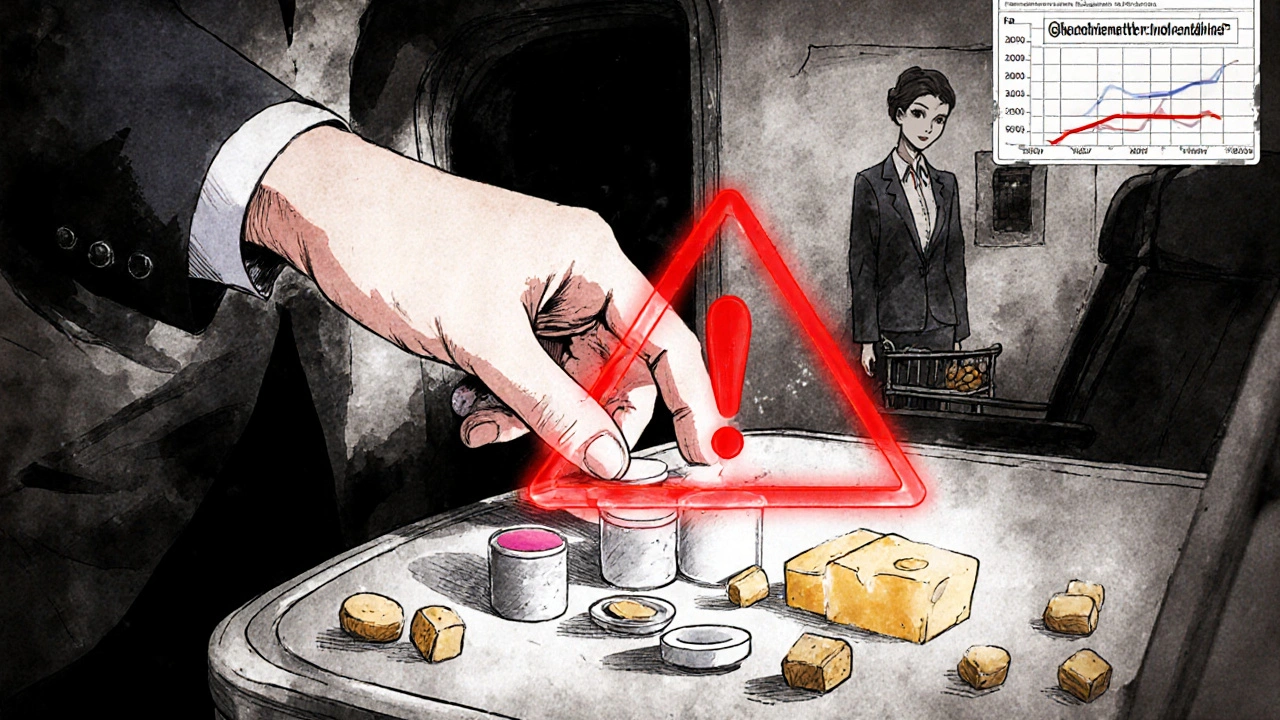How to Time Antibiotics and Antimalarials Across Time Zones
 Nov, 10 2025
Nov, 10 2025
When you’re flying from New Zealand to Kenya, or from Canada to Thailand, your body doesn’t just adjust to the new time - your pills do too. Getting your antimalarials or HIV meds on schedule across time zones isn’t optional. It’s the difference between staying healthy and risking drug resistance, treatment failure, or even malaria infection. Most people think, "I’ll just take it at my usual time," but that’s where things go wrong. You don’t need to be an expert to get this right. You just need to know what to do - and when.
Why Timing Matters More Than You Think
Antimalarials and antiretrovirals aren’t like painkillers. They don’t work if they’re late. Miss a dose of atovaquone-proguanil (Malarone), and your protection against malaria drops fast. Take your HIV meds an hour too late, and your viral load could spike. This isn’t theoretical. In 2022, a survey of 1,450 travelers on antiretroviral therapy found that 23% missed doses during travel. Of those, nearly 8% saw their viral load rebound. That’s not a small risk - it’s a public health issue.
The problem gets worse with long flights. A nonstop flight from Auckland to London takes 24 hours. That’s more than a full day lost to jet lag, cabin pressure, and bad in-flight meals. If you’re supposed to take your pill at 8 a.m. Auckland time, but you land in London at 6 p.m. local time, what do you do? Take it now? Wait until 8 a.m. London time? The answer depends on the drug - and most travelers don’t know the difference.
Antimalarials: The Three Main Types and Their Rules
There are three main antimalarials used for prevention. Each has its own schedule - and its own mistakes.
- Atovaquone-proguanil (Malarone): This is the most popular for short trips. You start 1-2 days before entering a malaria zone. You take it daily, and you must take it with food - preferably fatty food. A 2008 study showed absorption jumps 300-400% when taken with a meal. Skip the food, and you’re not protected. You continue for 7 days after leaving the area. If you miss a dose, take it as soon as you remember - but if you’re in a malaria zone, you must keep taking it for 4 extra weeks after you restart.
- Chloroquine: Used in places where malaria hasn’t developed resistance. You take it once a week, starting 1-2 weeks before travel. You keep taking it for 4 weeks after you return. It’s forgiving - a few hours off won’t hurt. But it’s not effective in most of Africa or Southeast Asia anymore.
- Mefloquine: Taken weekly, so it’s easy to remember. But it has side effects: anxiety, dizziness, nightmares. About 1 in 8 people can’t tolerate it. Still, if you can handle it, you can stick to your home time zone for up to 10 days after crossing time zones without problems.
Artemether-lumefantrine is used for treatment, not prevention. If you get malaria, you take four tablets now, four more in 8 hours, then four twice a day for the next two days. And yes - you need fat with every dose. No fat? No drug absorption. That’s why some travelers end up vomiting after taking it on an empty stomach during a flight. They didn’t know.
Antiretrovirals: The High-Stakes Game of Timing
If you’re on HIV medication, timing is even more critical. Your viral load can rebound in days if you’re inconsistent. The good news? Not all drugs are the same.
Here’s what you need to know:
- Dolutegravir: One of the most forgiving. You can be up to 12 hours late without major risk. That’s why it’s becoming the go-to for travelers.
- Raltegravir: Tolerates up to 8 hours of delay.
- Tenofovir/emtricitabine: Only 6 hours of wiggle room.
- Protease inhibitors (like darunavir, atazanavir): Stick to a 4-6 hour window. Go beyond that, and resistance can develop.
The CDC recommends starting to adjust your dosing time 72 hours before you leave if you’re crossing more than 8 time zones. Shift your dose by 1-2 hours per day toward your destination time. If you’re flying east (like from New Zealand to Europe), move your dose earlier each day. If you’re flying west (like from the U.S. to Australia), shift it later.
Don’t try to jump straight to the new time. Your body needs time to adapt. And if you’re on a complex regimen with multiple pills, talk to your doctor. Some people switch to long-acting injectables like cabotegravir/rilpivirine before travel - one shot every two months. But it’s not available everywhere yet.

Practical Tips for Real-World Travel
You don’t need a PhD to get this right. Here’s what works:
- Plan ahead - 3 weeks before you leave. Talk to your doctor or a travel clinic. Bring your pill bottles and your flight itinerary. They’ll map out your dosing schedule.
- Use a medication app. Medisafe, MyTherapy, or even Google Calendar with alarms work. Set multiple alarms: one for the time at departure, one for the time at arrival, and one for your home time zone. You’ll be surprised how often you forget.
- Print a dosing chart. Write down: "Take Malarone at 8 a.m. local time. Always with food." Keep it in your wallet. Show it to the flight attendant if you need to eat at a weird time.
- Never take antimalarials on an empty stomach. Pack nuts, cheese, or peanut butter packets. Even if you’re not hungry, eat something.
- Carry extra pills. Always bring 10-15% more than you need. Flights get delayed. Borders close. You don’t want to run out in a remote village.
And here’s a real tip from travelers: If you’re crossing more than 6 time zones, don’t try to sleep through your dose. Set an alarm for when you land. Even if you’re exhausted, take it. Then sleep. Better to be awake for 10 minutes than to risk malaria or HIV resistance.
What the Experts Say - And What They Don’t
Dr. Jonathan Smith, who led the key 2015 review on antiretroviral timing, says: "The risk is lowest when your viral load is already suppressed." That means if you’re stable on meds, you’re less likely to have problems. But if your viral load is high or you’re new to treatment, don’t travel without a plan.
Dr. Jane Wilson-Howarth, a travel medicine specialist, warns that jet lag makes people forget. You’re tired. You’re confused. You eat at the wrong time. You skip your pill. That’s why she tells patients: "Your body’s clock is broken for a few days. Your pill schedule isn’t. Stick to it like a rule, not a suggestion."
But here’s the gap: Current guidelines don’t cover travelers who cross three or more time zones in under 48 hours. That’s common now. A flight from Tokyo to New York with a layover in London? You’re changing time zones twice in a day. No official guide tells you how to handle that. You’re on your own.

Technology Is Helping - But Not Enough
The CDC launched a free Malaria Prophylaxis Timing Calculator in early 2024. You plug in your flight, your drug, and your start date. It spits out a schedule. A pilot study at Johns Hopkins showed it cut errors by 63%. That’s huge.
But here’s the catch: Only 17 countries offer long-acting HIV injections. Most travelers still rely on daily pills. And in 89% of malaria-endemic countries, there’s no standardized advice for time zone changes. You might get different answers in Nairobi, Kampala, and Kathmandu.
Pharmacies like Walgreens now offer free pre-travel counseling. If you’re in the U.S., use it. If you’re elsewhere, ask your local clinic. Don’t assume they know - many don’t. Bring the CDC guidelines with you.
Final Rule: When in Doubt, Take It - Then Call Your Doctor
If you miss a dose and you’re in a malaria zone? Take it as soon as you can. Then keep taking it daily. Don’t stop. Don’t skip. And call your doctor when you get home. You might need extra weeks of protection.
If you miss an HIV pill? Take it if it’s within your forgiveness window. If it’s past that window, take it anyway - and contact your provider. Don’t panic. But don’t ignore it.
The goal isn’t perfection. It’s consistency. You’re not trying to be a robot. You’re trying to stay alive.
Can I take antimalarials without food if I’m on a plane?
No. Atovaquone-proguanil (Malarone) and artemether-lumefantrine need fat to be absorbed properly. On a plane, ask for a snack with cheese, nuts, or peanut butter. If none is available, take it anyway - but eat something as soon as you can. Skipping fat reduces effectiveness by up to 70%.
What if I forget my pills and can’t find them abroad?
Always carry extra pills - at least 10% more than your trip length. If you run out, go to a hospital or clinic. Show them your prescription and bottle. Most countries can refill antimalarials and antiretrovirals, but it may take time. Never try to substitute with another drug - even if it’s the same name. Brand and generic versions can differ.
Do I need to adjust my HIV meds if I’m only crossing 3 time zones?
If you’re on dolutegravir or raltegravir, you can probably stick to your home time zone for a few days. But if you’re on a protease inhibitor, even 3 time zones can be risky. Best practice: Shift your dose by 1 hour per day in the direction of travel, starting 24-48 hours before departure. It’s easier than trying to remember a new time.
Is it safe to drink alcohol while taking antimalarials or antiretrovirals?
Moderate alcohol is usually fine with Malarone or dolutegravir. But avoid heavy drinking. Alcohol can worsen side effects like nausea or dizziness. With mefloquine, alcohol increases the risk of anxiety and hallucinations. With some HIV meds, it can stress your liver. When in doubt, skip it.
Can I use a smartwatch to remind me to take my pills?
Yes - but don’t rely on it alone. Set alarms on your phone too. Smartwatches die. Phones get left behind. Use multiple reminders: phone, watch, printed schedule, and tell a travel companion. Redundancy saves lives.
What if I’m traveling to a country where they don’t speak my language?
Carry a printed card in the local language that says: "I need to take this medicine every day at this time. It must be taken with food." Include the drug name, dosage, and your doctor’s contact info. Use Google Translate to make it. Pharmacies in major cities often have English-speaking staff, but don’t assume.
What to Do Next
If you’re planning a trip and take daily medication, don’t wait until the airport. Book a travel health appointment now. Bring your pill bottles, your itinerary, and your questions. Most clinics offer this for free or low cost.
If you’re on antiretrovirals, ask about long-acting injectables. If you’re taking antimalarials, ask for the CDC’s timing calculator. Print your schedule. Set your alarms. Pack extra pills. Eat with your meds. And remember: You’re not just traveling - you’re managing your health across borders. Do it right, and you’ll be fine.
Beth Banham
November 10, 2025 AT 22:19Just took my Malarone on a 14-hour flight last month. Didn't eat a thing till we landed. Felt fine, but now I'm second-guessing everything. Thanks for the reminder about the fat thing. I'll pack peanut butter packets next time.
Alyssa Fisher
November 12, 2025 AT 21:07It's fascinating how biology doesn't care about time zones. Your liver doesn't know you're on vacation. It just knows when the drug concentration drops below threshold. That's why consistency isn't just advice-it's biochemistry. We treat meds like coffee, but they're not. They're precision instruments.
Alyssa Salazar
November 13, 2025 AT 10:11Let's be real-most people don't even know what 'bioavailability' means. And yet they're crossing 8 time zones with dolutegravir like it's a vitamin. The CDC calculator is a godsend, but why isn't this embedded in every flight booking site? Airlines make you watch safety videos for 12 minutes but won't pop up a med reminder? Absurd.
Brierly Davis
November 14, 2025 AT 13:17You got this!! 🙌 I used to miss doses on trips until I started using Medisafe + a printed chart stuck to my passport. Now I'm 100% compliant. Even when I was in Bali and the power went out-I used my phone flashlight to read the label. You're not alone, everyone's figuring it out as they go.
Rachel Puno
November 15, 2025 AT 23:15Stop overcomplicating it. Take your pill when you wake up. Eat something. Done. Your body will adapt. You don't need a spreadsheet. I've been doing this for 10 years. Never got sick. Just chill.
Brad Seymour
November 17, 2025 AT 14:50I'm British and took Mefloquine to Vietnam. Had nightmares so bad I woke up screaming. But I stuck with it because I didn't want malaria. Still, I wish someone had warned me about the side effects before I boarded. This post is a lifesaver. Thanks.
Jay Wallace
November 18, 2025 AT 13:34Wow. This is the kind of thing only Americans care about. In the real world, people take meds when they remember. If you get malaria? You get treated. If your viral load spikes? You get a new regimen. We don't need a 3000-word essay on bioavailability. You're making it into a religion.
Cris Ceceris
November 19, 2025 AT 02:42I think the real issue isn't the meds-it's the system. Why is it on the traveler to be an expert? Why isn't there a global standard? Why do pharmacies in Nairobi have no idea what Malarone is? We're treating global health like it's a personal responsibility. It should be infrastructure.
Malia Blom
November 19, 2025 AT 22:04Okay but what if you're just a lazy person who doesn't want to plan? What if you're poor and can't afford extra pills? What if you're undocumented and can't see a doctor? This post reads like a luxury guide for rich white people with insurance. Real talk: most people just wing it. And they survive.
Clyde Verdin Jr
November 20, 2025 AT 02:38So you're telling me I need to eat peanut butter with my malaria pills? And carry 15% extra? And set 3 alarms? And talk to a doctor 3 weeks ahead? And avoid alcohol? And not sleep through my dose? This isn't travel advice-it's a cult. I'm not a robot. I'm a human. Let me live.
Also, Malarone costs $100 a pill in the US. You think I'm buying extra?
Erika Puhan
November 20, 2025 AT 13:57The real problem is that this entire framework assumes you have access to healthcare, stable meds, and the privilege to plan ahead. Most people in malaria-endemic countries can't even get a single dose. This feels like performative health literacy for tourists who think they're saving the world by packing nuts.
Edward Weaver
November 22, 2025 AT 04:23Wow. You're telling me I can't just take my HIV meds at 8 a.m. New York time, no matter where I am? That's ridiculous. I've been doing it for years. I'm not some weak tourist. I'm a strong American. You're just trying to scare people with stats. 23% missed doses? So what? 77% didn't. I'm in the 77%.
Key Davis
November 22, 2025 AT 21:16Thank you for this meticulously researched and clinically grounded exposition. The integration of pharmacokinetic principles with pragmatic travel logistics represents a paradigm shift in patient-centered care. I shall distribute this document to my colleagues at the World Health Organization's Travel Medicine Division. Such clarity is rare and invaluable.
Brierly Davis
November 23, 2025 AT 00:11^^^ I'm so glad someone said that. I used to think I was the only one stressing over this. Now I feel less alone. You're right-this isn't about being perfect. It's about being smart. And if you're on injectables now? That's a game-changer. I'm talking to my doctor next week.